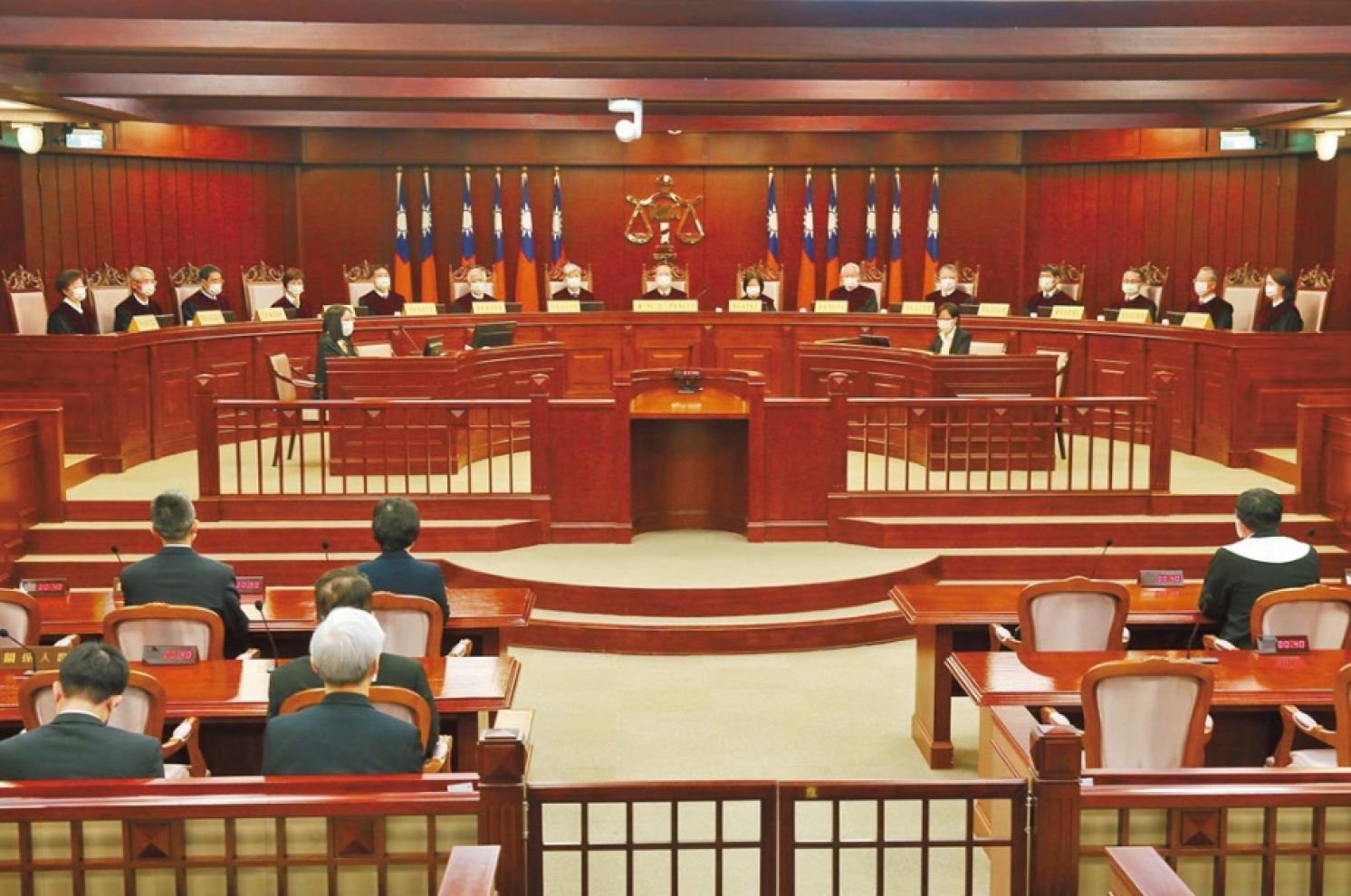
Death Penalty ''Conditionally Constitutional'' But Essentially Abolished
Comprehensive News Coverage by Taiwan Weekly
Thirty-seven (37) death row inmates claimed that the death penalty system in the criminal law was unconstitutional and petitioned for a constitutional review. On August 20, the Constitutional Court declared that the death penalty was constitutional, but strictly limited the types of crimes and requirements applicable to it. Although the death penalty still exists on the surface, it can be said to have been “substantially abolished.” How to appease the public opinion of more than 80 percent who are opposed to abolishing death penalty will test the administration of President Lai Ching-te.
The Constitutional Court indicated that the capital punishment, as the heaviest penalty for homicide, aims to make the defendant bear relative guilt and hopes to exert the deterrence of punishment and reduce crime. However, the Constitutional Court held that the death penalty “has no special preventive function.” In the context of history and society, retributive justice is still a particularly important public interest, and the death sentence is constitutional.
However, the Constitutional Court has set a strict eight-step threshold. The death sentence must meet the most serious criminal circumstances of intentional homicide, and the third trial must have a mandatory defender, oral arguments, and a unanimous decision by the collegial panel judges. If a judge who upholds the abolition of death belief or religious reasons “does not kill”, then the criminals can escape death no matter how cruel they are. The death penalty may not be imposed or executed even if the defendant has a mental disorder or mental defective at the time of the act, trial or execution.
The legal community indicated that the Constitutional Court’s judgment has 17 articles, but the ultimate purpose behind it is to help death row inmates reverse their convictions and avoid death. It will be difficult to impose death sentences in the future because the Constitutional Court requires more exhaustive procedures, making the death penalty system “exist in name only.” Taiwan can be fairly said that it is equivalent to “essentially abolishing death.”
According to the verdict, the 37 death row inmates will not only be exempted from execution by extraordinary appeal, but also can reverse their convictions and avoid death sentence in the future. This was extremely unacceptable for the victims’ families, and they criticized the Constitutional Court for trampling on the human rights of the victims and their families.
The public is concerned that the 37 death row inmates will be released and wander freely outside. The Ministry of Justice stated that since the crimes committed by the 37 death row inmates are the most serious crimes of intentionally depriving the legal rights of life, the Supreme Prosecutors Office will be asked to strictly review extraordinary appeals in accordance with the law, and the court will be asked to properly handle the custody issue of prisoners to avoid causing social panic.
Although the Constitutional Court did not make an unconstitutional interpretation, it still triggered rising criticism. According to an online poll conducted by NOWnews after the results of the constitutional interpretation were released, as of August 21, a total of 13,000 people had participated in voting. Among them, 88 percent oppose the abolition of death penalty and support the death penalty; only 6 percent agree that the justice declares the death penalty to be constitutional, but the scope of application must be limited.
Attorney Yeh Ching-yuan, deputy secretary-general of the Republic of China’s Constitutional Society, said that the Constitutional Court opportunistically made a conditional constitutional judgment on the death penalty to avoid social blame, and then went beyond the boundaries of judicial power to create strict procedural requirements to achieve the goal of essentially abolishing the death penalty. This increases the burden on ordinary court judges. It is regrettable that we cannot see the justices’ high altitude of upholding the Constitution, but only the irresponsible willfulness in distorting the judicial order to rendering favors to their own ideology.
The medical community also expressed concern about the verdict. Lee Chun-hung, board member of the Forensic Psychiatry Association, said that medical doctors’ bounden duty is to protect life. The World Psychiatric Association’s Madrid Declaration and Geneva Declaration stated that under any circumstances, psychiatrists should not perform assessments of capacity to endure (death) sentence. If a physician’s identification may deprive a person of life, there will be concerns about violating medical ethics.
Chairman Eric Chu of the opposition Kuomintang (KMT) criticized that the result of the constitutional interpretation almost declared the de facto abolition of death penalty. Is it fair to the victims and their families? Eight in 10 Taiwanese have long opposed the abolition of the death penalty. According to Chu, many of the newly nominated grand justices of the Judicial Yuan have expressed support for the abolition of death penalty. Have they indicated that they plan to overturn the case in the future? The KMT solemnly appeals to President Lai to not shirk his responsibility when exercising his nomination power. He should make a clear stance, respond positively, and give an explanation to the public, the families of the deceased, and the hard-working law enforcement officers on the front line. Chu said that the KMT caucus of the Legislative Yuan will represent public opinion, strictly exercise the right to consent, and ensure fairness and justice.
KMT Legislator Weng Hsiao-ling proposed amending the Constitutional Procedure Law to raise the threshold for justice judgments from a simple majority to two-thirds. The proposal has been listed as a priority bill by the KMT caucus, and the goal is to complete the amendment by the end of October. The KMT has communicated with the Taiwan People’s Party (TPP) legislators and reached a certain consensus.